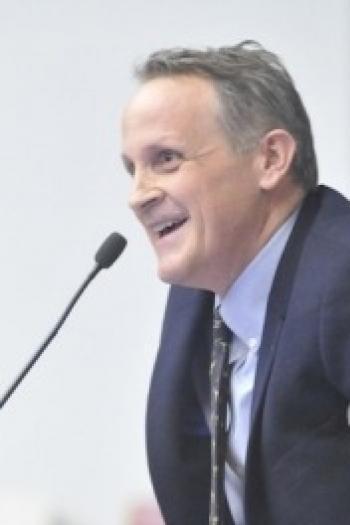Paul Kingston

Paul Kingston is interested in the politics and power that underpin the dynamics of development and/or underdevelopment. He approaches this from the discipline of political science but with an historians eye to the longer term political, economic, and institutional processes that influence development trajectories. His more published work has focused on the political dynamics of development in weak and fragile states. His most recent research will focus on the politics of disability within the Middle East region.
Education
D.Phil., Oriental Studies (Modern Middle East), St. Antony's College, Oxford University, 1991
M.Phil., Oriental Studies (Modern Middle East), St. Antony's College, Oxford University, 1988
MA (Distinction), Institute of Commonwealth Studies, University of London, 1985
BA (Honours), International Relations, Trinity College, University of Toronto, 1984.
Publications
- “The Ebbing and Flowing of Political Opportunity Structures: Revolution, Counter-Revolutionary, and the Arab Uprisings” in (eds.) Moises Arce and Roberta Rice, Protest and Democracy, Calgary: University of Calgary Press, 2019.
- “Minorities, Civil Society, and the State in the Contemnporary Middle East: A Framework for analysis” in (ed. Paul Rowe), Routledge Handbook of Minorities in the Middle East, New York: Routledge, 2019,
- “Challenging the Gatekeepers: Disability Rights Advocacy and the Struggle for Self-Representation within Lebanon’s Postwar Sectarian Democracy”, in (eds.) Bettina von Lieres and Lawrence Piper, Mediating States and Citizens: Representing the Marginalised in the Global South, New York: Palgrave/MacMillan, 2014.
- Reproducing Sectarianism: Advocacy Networks and the Politics of Civil Society in Postwar Lebanon, Albany: SUNY Press, 2013 (hbk.) and 2014 (pbk.).
- "The Pitfalls of Peace-Building “From Below”: Governance Promotion and Local Political Processes in Post-Conflict Lebanon" in International Journal, Spring 2012, 67, 2, p. 333-350.